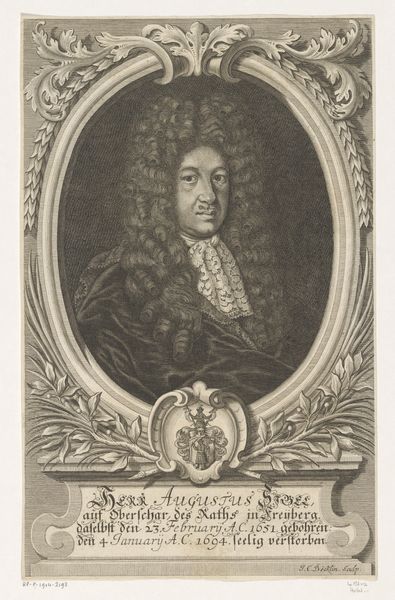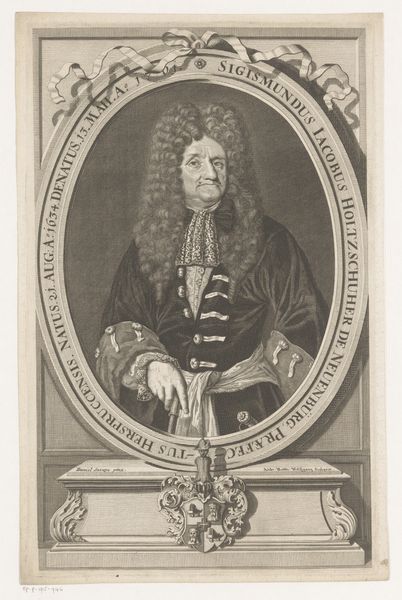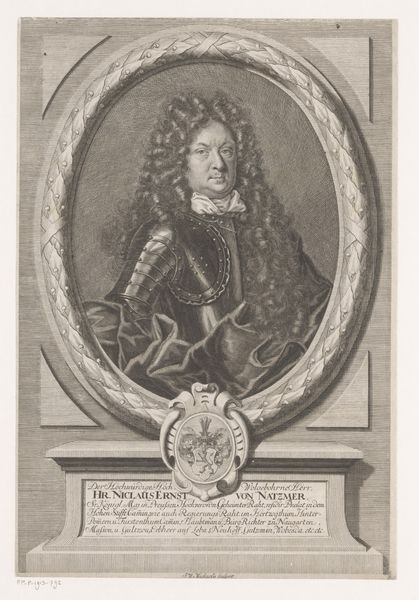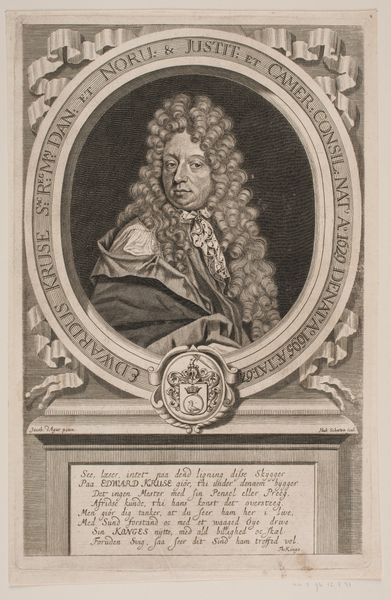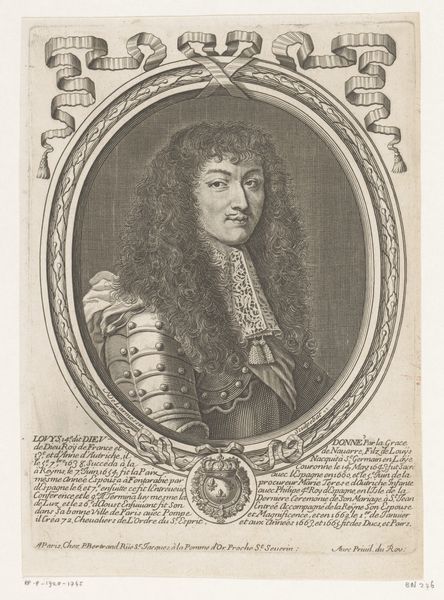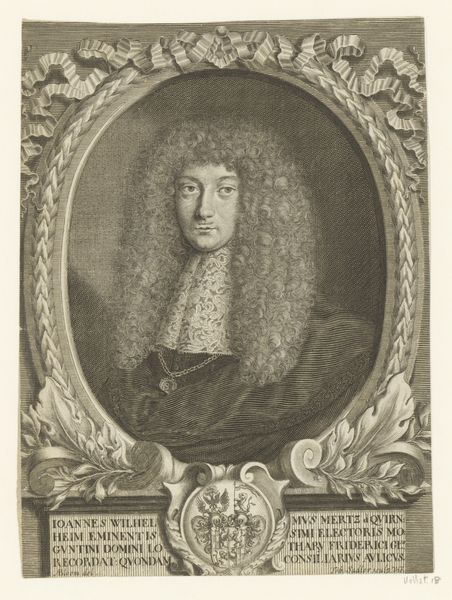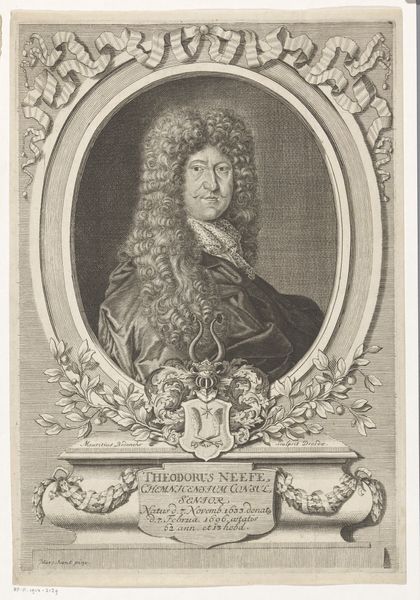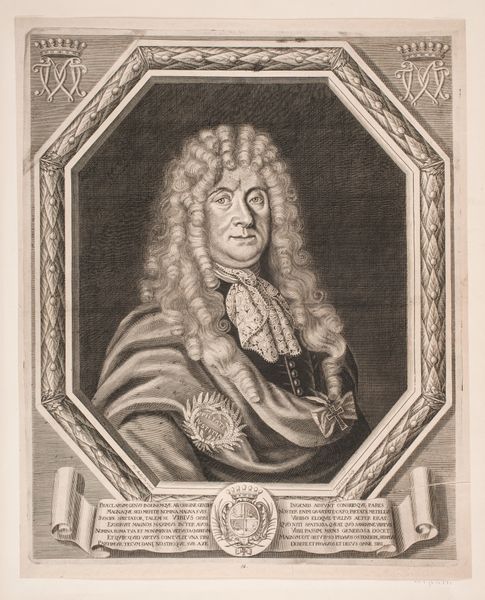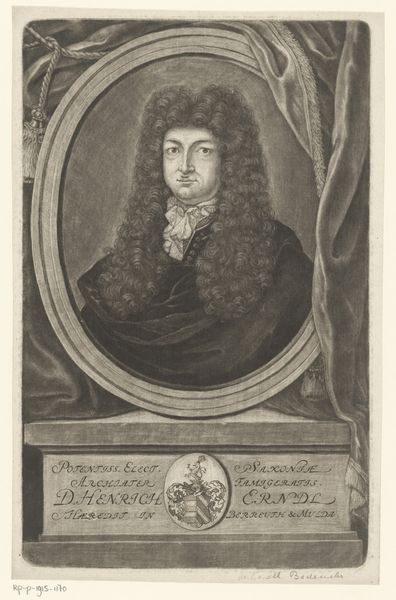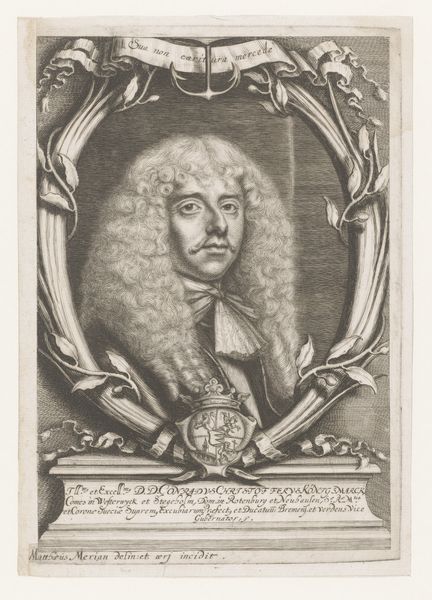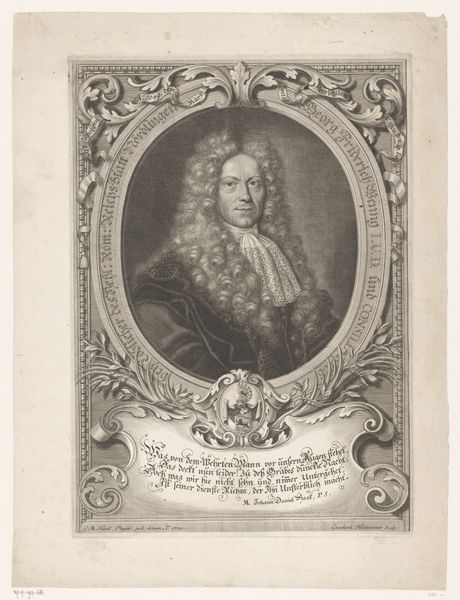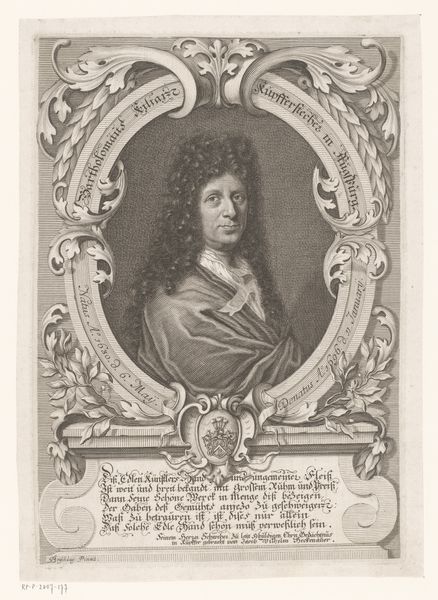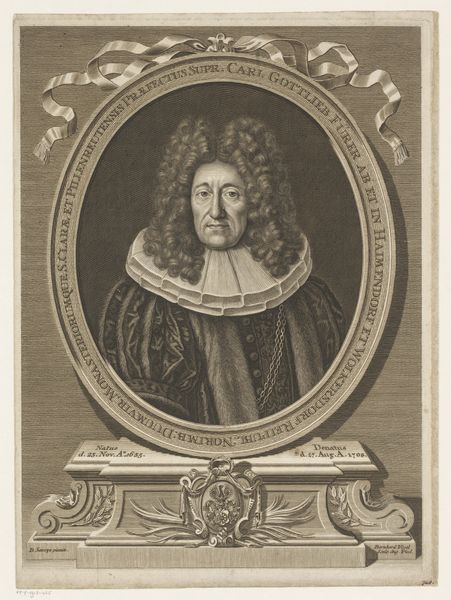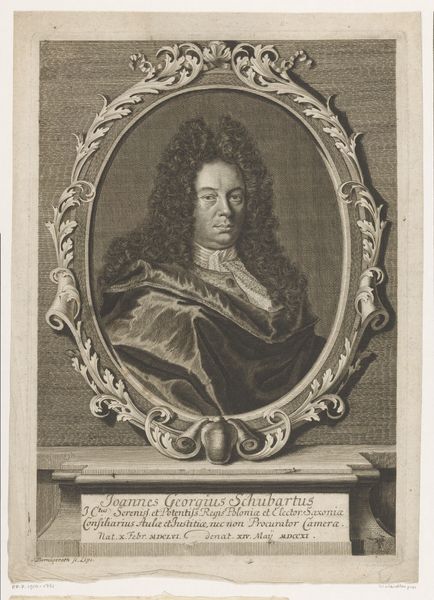
engraving
#
portrait
#
baroque
#
old engraving style
#
caricature
#
form
#
pencil drawing
#
line
#
engraving
Dimensions: height 314 mm, width 202 mm
Copyright: Rijks Museum: Open Domain
This portrait of Georg Rudolph von Lüttichau was made by Johann Christoph Boecklin. It’s an engraving, meaning the image was incised into a metal plate, likely copper, and then printed onto paper. Look closely and you'll see a network of fine lines, carefully etched to create the illusion of light and shadow. The engraver would have used specialized tools, like burins and scrapers, to achieve this level of detail. Notice the texture of von Lüttichau's wig, the folds of his cravat, and the ornate frame surrounding him. Each of these elements required immense skill and patience. Engraving was a labor-intensive process, demanding both technical expertise and artistic sensibility. The resulting prints, like this one, could be reproduced and distributed widely, making them a powerful tool for disseminating images and ideas. As you consider this image, think about the relationship between artistic skill, mechanical reproduction, and social status in the 17th and 18th centuries. The print represents a convergence of craft, commerce, and cultural values.
Comments
No comments
Be the first to comment and join the conversation on the ultimate creative platform.
